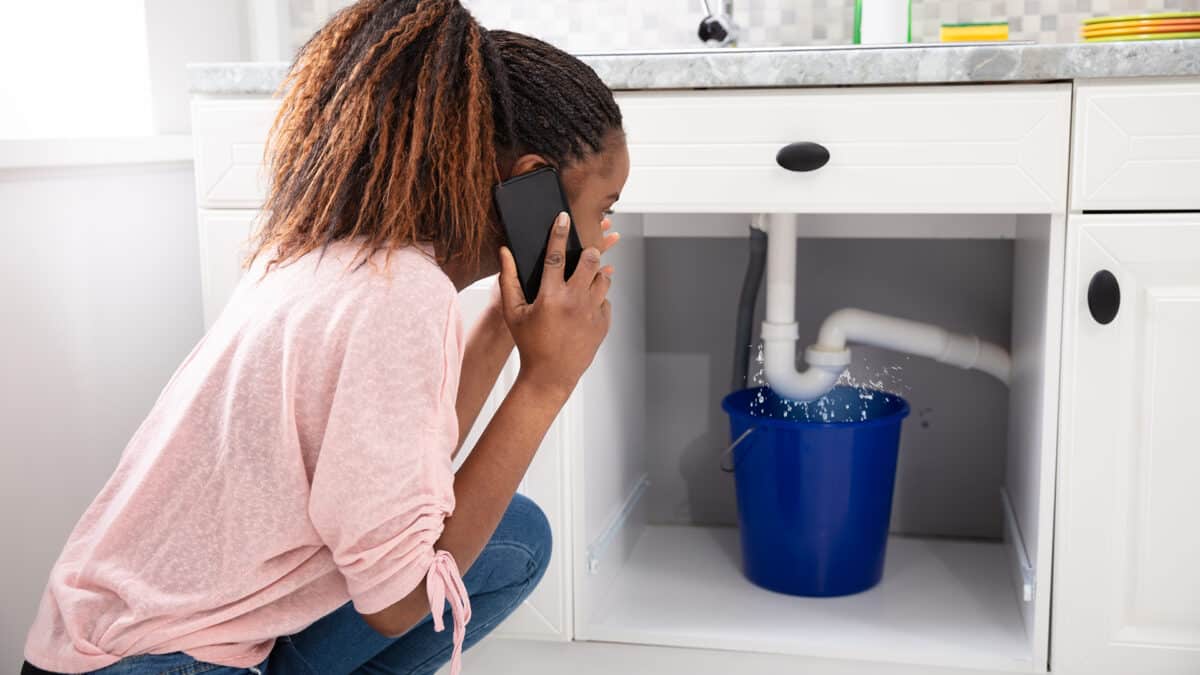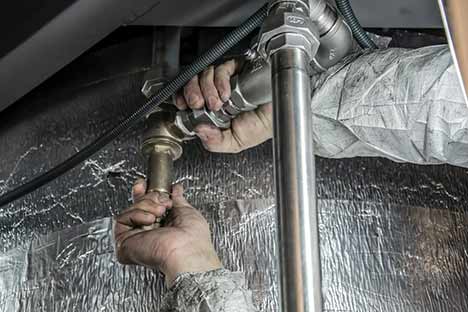Fast Fixes for Plumbing Emergencies: What to Do Until Help Arrives
Fast Fixes for Plumbing Emergencies: What to Do Until Help Arrives
Blog Article
How do you feel about What to Do During a Plumbing Emergency?

Plumbing emergency situations can strike any time, creating stress and potential damage to your home. Whether it's a burst pipe, a stopped up drainpipe, or a dripping tap, recognizing how to handle the scenario till a specialist plumbing professional arrives can save you from further complications. This article offers important emergency plumbing suggestions to assist you reduce damage and restore control during a plumbing crisis.
Turn Off the Supply Of Water
The initial step in any plumbing emergency is to shut off the water. For local concerns, such as a dripping tap or bathroom, shut off the valve near the fixture. In the case of a significant leakage or ruptured pipeline, find your home's main water shut-off valve and turn it off quickly. Recognizing the area of these shutoffs in advance can save valuable time throughout an emergency situation.
Turn off Your Water Heater
In certain emergencies, such as a ruptured pipeline, it's a good idea to shut off your water heater. This protects against overheating or damage to the device when water quits streaming. Turn off the power supply to the hot water heater (electrical or gas) and let it cool down to stay clear of possible dangers.
Temporarily Quit a Ruptured Pipe
A burst pipeline can result in significant water damages in mins. To reduce the concern:
Call a professional plumbing professional right away to address the trouble permanently.
Have an Emergency Situation Plumbing Set
Prepare a basic pipes emergency set to handle small issues properly. Your set needs to include:
Having these tools accessible can make a considerable distinction in your capability to take care of emergencies.
Unclog Drains Pipes Safely.
A stopped up drain can be a discouraging and messy problem. Below's how to tackle it:.
If these approaches don't work, prevent making use of excessive force, as it might get worse the blockage.
Handle Overflowing Toilets.
An overruning commode can cause instant turmoil. Below's what you should do:.
Address Little Leaks with Momentary Repairs.
Little leakages can swiftly come to be substantial troubles if left uncontrolled. Use these temporary fixes until professional help arrives:.
While these solutions aren't irreversible, they can assist lessen water loss and damage.
Deal With Frozen Pipes Carefully.
In cooler environments, icy pipes are a common emergency. If you believe an icy pipeline:.
Know When to Call a Professional.
While quick fixes can aid briefly, specific plumbing concerns need immediate specialist interest. Call a plumbing if:.
Immediately getting in touch with a specialist makes sure the issue is solved properly and protects against additional complications.
Stop Further Damages.
Taking quick activity to reduce damages can save you money and time in the long run. Below's how:.
Final thought.
Pipes emergencies can be frustrating, but with the best expertise and tools, you can handle the scenario efficiently up until aid arrives. By shutting off the water supply, dealing with tiny leakages, and using momentary solutions, you can minimize damage and maintain your home safe. Remember, these suggestions are momentary remedies; always speak with an accredited plumber to deal with the source of the trouble. Prep work and quick thinking are your finest allies in any kind of pipes emergency.
8 Helpful Tips for Managing Plumbing Emergencies at Home
If your plumbing system hasn’t failed once, wait for it because almost everyone has a story to tell. Sometimes, it could be simple emergencies such as a leaking pipe, a blocked cistern, or even a big burst pipe. In situations like this, you need to have some handy tips to save you some money and from possible damages.
Take care of minor issues early.
Sometimes, you could have avoided an emergency by taking proactive measures while it was still early. Some major plumbing emergencies can be a result of an ignored minor issue. We recommend that you have items like plumbing tapes and other related items. A plumbing tape can allow you to manage minor leaks before the plumber arrives.
Cut off the water supply.
This tip is essential in almost any type of leakage problem. For problems like minor leakages in the toilet or kitchen, turn off the supply that takes water to the affected pipes. If the leakage is a major pipe, you must shut off the supply valve to the entire building. This will help you avoid flooding your home and neighbors if you share a flat.
Know your plumbing system
Folks typically move into a new apartment without understanding the water supply around the building. This can prove disastrous if a water emergency arises and the plumber is far away. The previous tip will prove useless if you don’t practice this one. More importantly, know where your water shut-off valve is located – you’ll need that knowledge to prevent potential home floods.
Have some common handy tools
There are lots of plumbing emergencies that you can handle without hiring a plumber. That’s why you must keep some tools available always. Some tools that you can use to fix simple plumbing emergencies easily include plumbing tapes, screwdrivers, thread seal tapes, plungers, pliers, tape measures, and rubber gloves.
Insulate your pipes from cold
You’ll save yourself from many plumbing expenses if you protect your water pipes from the cold. This is because of the harmful effects that cold weather can have on your pipes. During winter, your pipes can burst from being overly expected to freezing temperatures. So, make sure insulators are there to keep the pipes working correctly.
Avoid practices that will clog your toilet.
Many people indulge in practices that can damage the plumbing system of the entire building. One of these is when they use their toilet to dispose-off garbage. They flush all kinds of things, such as paper towels, bandages, hairs, female sanitary products, etc., down the toilet. This will block your toilet in the long run, incurring unnecessary expenditures. Dump such waste in the trash instead.
Check your dials regularly.
Sometimes, there could be leakages in your home without noticing them in time. So, constantly monitor your water meter dial. If the dial is reading when there is nobody using water, this is an indicator that there is leaking. Check for leaks immediately. Call a plumber as soon as possible if you can’t find any.
https://www.constructionplacements.com/8-helpful-tips-for-managing-plumbing-emergencies-at-home/

I ran across that entry on Expert Tips for Emergency Plumbing Repairs when doing a lookup on the web. You should set aside a second to distribute this blog post if you enjoyed it. We truly appreciate reading our article about .
Book Appointment Report this page